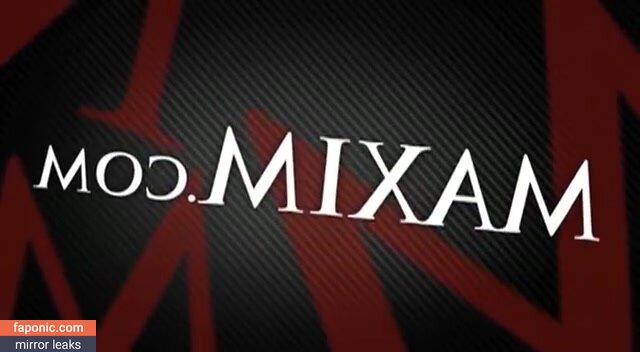FTC Vs. Meta: Defense Takes Center Stage In Monopoly Trial

Table of Contents
Meta's Core Defense Arguments
Meta's legal team is aggressively challenging the FTC's core assertion of monopolistic practices. Their defense strategy hinges on several key arguments, all aimed at undermining the FTC's claim of market dominance. The arguments revolve around the definition of the relevant market, the competitive landscape, and Meta's own innovative practices.
-
Dispute the FTC's Market Definition: Meta argues the FTC's definition of the market is too narrow, focusing solely on social networking and ignoring the broader digital landscape. They contend that the relevant market encompasses a far wider range of platforms including communication apps, messaging services, and even online gaming platforms, all vying for users' attention. This broader definition significantly reduces Meta's perceived market share, weakening the FTC's monopoly claim.
-
Emphasize the Dynamic and Competitive Nature of the Social Media Landscape: The defense will highlight the intense competition from various platforms such as TikTok, Snapchat, Instagram, Twitter (now X), and numerous other emerging social media and communication apps. This intense rivalry, Meta will argue, prevents any single entity from exercising undue control over the market. They will present data on user engagement, platform growth, and advertising revenue to support their argument.
-
Highlight Successful Innovations and User Growth: Meta plans to showcase its continuous innovation as evidence against monopolistic behavior. Features like Reels (a TikTok competitor), Marketplace, and various business tools will be presented as examples of Meta's commitment to innovation and adapting to market demands, rather than stifling competition. Their continued user growth, despite the supposed monopoly, will be presented as further proof of healthy competition.
-
Argue that Meta's Size and Scale are the Result of Successful Competition and Innovation: The defense will ultimately argue that Meta's size and market share are a direct result of offering desirable products and services, not anti-competitive practices. They'll aim to demonstrate that their success stems from user preference and technological advancement, not from suppressing competitors.
The Role of Acquisitions in Meta's Defense
The FTC has heavily scrutinized Meta's acquisition of Instagram and WhatsApp, claiming these moves were designed to eliminate nascent competition. Meta's defense strategy will counter these allegations by emphasizing the pro-competitive nature of these acquisitions.
-
Reiterate the Benefits of Instagram and WhatsApp Integrations for Users: Meta will showcase how integrating Instagram and WhatsApp into its ecosystem has benefited users by creating a more seamless and integrated user experience. They will argue these integrations fostered innovation and created new opportunities for both users and businesses.
-
Present Evidence to Support Claims that Acquisitions Were Not Designed to Eliminate Competition: The defense will present evidence demonstrating that the acquisitions were made with due diligence, complying with all relevant merger review processes. They will argue that the acquisitions enhanced, rather than diminished, competition in the market.
-
Challenge the FTC's Assessment of the Competitive Landscape at the Time of the Acquisitions: Meta will dispute the FTC's portrayal of the competitive landscape at the time of the acquisitions, arguing that the market was far more dynamic than the FTC suggests. They will present data to support their claims.
-
Highlight the Successful Integration and Subsequent Growth of Instagram and WhatsApp: The continued growth and success of Instagram and WhatsApp post-acquisition will serve as key evidence supporting Meta's contention that these acquisitions were ultimately beneficial to consumers and the market as a whole.
Witness Testimony and Evidence Presentation
Mark Zuckerberg's testimony will be a pivotal moment in the trial. The effectiveness of Meta's defense heavily relies on the strategic preparation of key witnesses and the compelling presentation of evidence.
-
Strategic Preparation of Mark Zuckerberg and Key Witnesses: Meta's legal team will meticulously prepare Zuckerberg and other key witnesses to withstand rigorous cross-examination and present their case convincingly. This preparation includes mock trials and extensive review of all relevant documents.
-
Presentation of Compelling Evidence to Refute FTC Claims: The defense will present a wide range of evidence, including internal documents, market data, user statistics, and expert testimony, to refute each of the FTC's allegations. The presentation of this evidence will be carefully orchestrated to maximize its impact on the court.
-
Effective Use of Expert Witnesses to Support Their Arguments: Meta will utilize expert witnesses in areas such as economics, market analysis, and technology to support their arguments and counter the FTC's expert testimony. The selection and preparation of these experts will be critical to the success of the defense.
-
Countering the FTC's Expert Testimony: The defense strategy will involve a thorough review and analysis of the FTC's expert testimony, identifying weaknesses and inconsistencies that can be highlighted during cross-examination.
The Potential Impact of the FTC vs. Meta Trial
The outcome of the FTC vs. Meta trial will have significant implications for antitrust enforcement, tech regulation, and the broader digital landscape.
-
Potential Changes to Antitrust Laws and Regulations: The case's resolution could lead to changes in antitrust laws and regulations, particularly concerning mergers and acquisitions in the tech sector. The court's interpretation of market dominance and anti-competitive behavior will set important precedents.
-
The Impact on Future Tech Mergers and Acquisitions: The trial's outcome will significantly influence how future tech mergers and acquisitions are scrutinized and regulated. Companies considering mergers or acquisitions may face increased regulatory hurdles depending on the court's ruling.
-
The Long-Term Implications for Social Media Companies and the Digital Landscape: The case will set a precedent for how social media companies are regulated and will have far-reaching consequences for the future of competition and innovation in the digital landscape.
Conclusion
The FTC vs. Meta trial is a landmark case with far-reaching consequences for the tech industry and antitrust law. Meta's defense strategy, focusing on market definition, the pro-competitive nature of its acquisitions, and a robust presentation of evidence, will be crucial in determining the outcome. The case's resolution will shape future antitrust enforcement and set precedents for how tech companies are regulated. Staying informed about the developments in this landmark FTC vs. Meta case is vital for understanding the evolving landscape of competition in the social media sector. Keep following the ongoing legal battle to fully grasp the implications for the future of digital markets.

Featured Posts
-
 American Manhunt A Critical Analysis Of Netflixs Bin Laden Documentary
May 18, 2025
American Manhunt A Critical Analysis Of Netflixs Bin Laden Documentary
May 18, 2025 -
 Kanye Westo Sokiruojantis Poelgis Paviesinta Intymi Biancos Censori Nuotrauka
May 18, 2025
Kanye Westo Sokiruojantis Poelgis Paviesinta Intymi Biancos Censori Nuotrauka
May 18, 2025 -
 The Disturbing Trend Of Betting On The Los Angeles Wildfires
May 18, 2025
The Disturbing Trend Of Betting On The Los Angeles Wildfires
May 18, 2025 -
 Photos Cassie Venturas Red Carpet Pregnancy Reveal At The Mob Land Premiere
May 18, 2025
Photos Cassie Venturas Red Carpet Pregnancy Reveal At The Mob Land Premiere
May 18, 2025 -
 Where To Stream Damiano Davids Next Summer
May 18, 2025
Where To Stream Damiano Davids Next Summer
May 18, 2025
Latest Posts
-
 Is Amanda Bynes Only Fans Account A Success
May 18, 2025
Is Amanda Bynes Only Fans Account A Success
May 18, 2025 -
 Amanda Bynes Joins Only Fans See Her Latest Photos And Plans
May 18, 2025
Amanda Bynes Joins Only Fans See Her Latest Photos And Plans
May 18, 2025 -
 Amanda Bynes On Only Fans The Details
May 18, 2025
Amanda Bynes On Only Fans The Details
May 18, 2025 -
 Amanda Bynes Only Fans Launch Photos And Recent Public Appearance
May 18, 2025
Amanda Bynes Only Fans Launch Photos And Recent Public Appearance
May 18, 2025 -
 Only Fans And Beyond Amanda Bynes Recent Activities Revealed In Photos
May 18, 2025
Only Fans And Beyond Amanda Bynes Recent Activities Revealed In Photos
May 18, 2025
